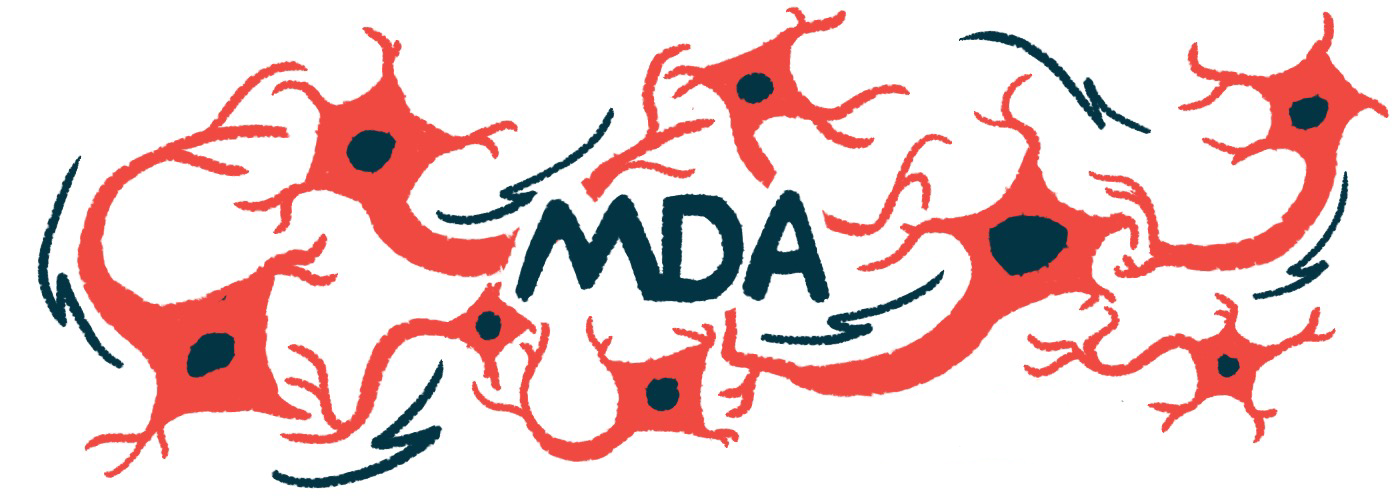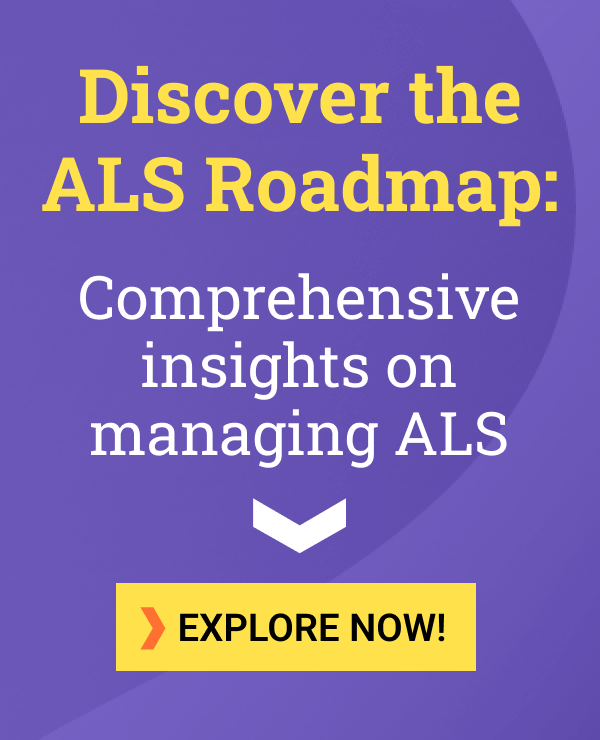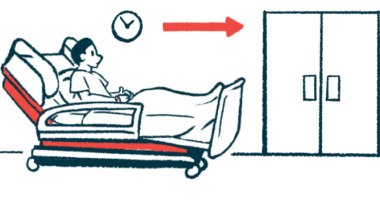MDA 2024: Planned Phase 3b trial aims to support NurOwn’s approval
Brainstorm releases design of pivotal ALS study, now under FDA review

Note: This story was updated March 6, 2024, to correct the poster was presented by Brainstorm’s executive vice president and chief development officer Bob Dagher.
A pivotal, Phase 3b clinical trial is planned to test the cell-based therapy NurOwn (debamestrocel) in people with amyotrophic lateral sclerosis (ALS), the treatment’s developer, Brainstorm Cell Therapeutics, announced.
The study’s design, based on positive findings from a previous Phase 3 trial in patients with less advanced disease, is under U.S. Food and Drug Administration (FDA) review.
In that earlier trial, NurOwn was seen to significantly slow disease progression in people with less severe ALS, but it failed at the study’s main goal of slowing progression across all treated patients. An FDA committee later decided that trial data were insufficient to support NurOwn’s effectiveness in ALS.
“We are committed to doing everything we can to make NurOwn available to ALS patients in need,” Chaim Lebovits, Brainstorm’s president and CEO, said in a company press release.
NurOwn, a cell therapy, showed potential in people with less advanced ALS
The company anticipates that the Phase 3b trial will confirm NurOwn’s benefits in this patient group, potentially supporting a new application requesting the therapy’s approval for people with mild-to-moderate ALS.
“The Phase 3b trial takes into account learning from NurOwn’s clinical development program, in addition to the latest insight from the ALS community,” Stacy Lindborg, co-CEO of Brainstorm, said in a statement to ALS News Today.
“We’ve simulated the operating characteristics of the trial and are confident this trial is a robust design which will rigorously assess the efficacy and safety of NurOwn,” she added.
Brainstorm reported submitting a special protocol assessment (SPA) for the trial to the FDA in late February. An SPA is used to request FDA review of a trial’s planned design to help ensure that positive results could feasibly support an application for therapy approval.
“We are grateful for the FDA’s ongoing engagement and look forward to its feedback and to finalizing the SPA,” Bob Dagher, MD, Brainstorm’s executive vice president and chief development officer, said in the release.
Details of the Phase 3b trial will be finalized following the FDA’s review and response. In the meantime, Dagher presented the planned study design at the Muscular Dystrophy Association’s 2024 Clinical and Scientific Conference, detailed in the poster “Design of A Phase 3B Trial of Debamestrocel in ALS.”
Planned yearlong trial to enroll 200 people with mild-to-moderate ALS
This yearlong, two-part study is expected to recruit about 200 adults, ages 18 to 75, with mild-to-moderate disease and ALS symptom onset less than two years before enrolling. Eligible participants also need to meet certain criteria surrounding physical function and breathing ability, and patients using approved ALS treatments must be on a stable dose before a screening for the trial.
In its planned first part, patients will be randomly assigned to NurOwn treatment or a placebo for about six months (24 weeks) while remaining on standard care. In a second part, all enrolled will be treated with NurOwn for another six months. Both placebo and NurOwn will be given by injection into the spine canal (intrathecal injection) every eight weeks.
The planned study’s main goal will be determining if NurOwn slows patients’ loss of functional abilities, as measured by changes from the trial’s start in Revised ALS Functional Rating Scale (ALSFRS-R) scores. It also plans to assess changes in measures of muscle strength and breathing ability, as well as survival outcomes.
Patients will be asked to complete a questionnaire on their health status and life quality, and interviews will be conducted with caregivers of participants.
“The planned study will enroll patients earlier in their disease course, as we believe that this is the appropriate patient population in which the course of the disease can be accurately measured using ALSFRS-R,” Dagher said.
NurOwn treatment involves collecting mesenchymal stem cells from a patient’s bone marrow and engineering them in a lab to secrete high levels of neurotrophic factors, signaling molecules that promote nerve health. The modified stem cells then are injected into the patient’s spinal canal, with the goal of slowing the progressive nerve damage that causes ALS.
The earlier Phase 3 trial (NCT03280056), which ended in 2020, tested NurOwn against a placebo in 189 adults with rapidly progressing ALS, most of whom had advanced disease. Although some promising trends were seen in patients with less severe disease, the study overall failed to show a statistically significant difference in disease progression rates between patients on NurOwn and those given a placebo.
FDA, advisory group found efficacy data lacking in previous approval requests
Brainstorm applied to the FDA for NurOwn’s approval in 2022, hoping that analyses showing beneficial Phase 3 trends would be enough to support treatment efficacy. The FDA initially refused to consider the application, citing insufficient data.
Brainstorm then used a procedure called file over protest to seek a review from an FDA advisory committee. But that committee also decided that available data were not enough to support therapy effectiveness, and Brainstorm withdrew its application in October.
Since then, the company has been working with the FDA on the design of a confirmatory Phase 3b trial — planned to enroll patients at sites across the U.S. — that it hopes will provide the evidence needed for NurOwn’s approval.
“We have given careful consideration to a Phase 3b trial that will conclusively demonstrate the efficacy and safety of NurOwn and support a new [application seeking FDA approval],” Dagher said.
“Our previous studies have provided us with valuable insight into the NurOwn treatment effect,” he added. “We believe that by incorporating these learnings into the design of a confirmatory study we can maximize the prospects of a successful outcome.”








